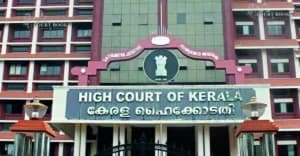In a significant ruling, the Madras High Court has set aside the discharge of Tamil Nadu Minister Durai Murugan and others in a disproportionate assets case, observing that the Special Court's findings were "perverse" and that the case must proceed to trial. Justice P. Velmurugan directed the Special Court to frame charges and complete the trial within six months from the date of the order.
The High Court emphasized that the Special Court had discharged the accused without framing charges or giving the prosecution a fair opportunity to substantiate its case. Criticizing the approach of the Special Court, Justice Velmurugan said, "The Special Court without framing charges and giving the prosecution an opportunity simply discharged the respondents/accused on technical grounds by interpreting the facts in its own way, which warrants interference."
The case dates back to Durai Murugan’s tenure as Minister for Public Works and Forest Department between 1996 and 2001. It was alleged that during this period, he accumulated wealth disproportionate to his known sources of income, both in his name and in the names of his family members — his wife, son, daughter-in-law, and brother. The Vigilance and Anti-Corruption Department registered a case against him and filed a chargesheet under Section 13(2) read with Section 13(1)(e) of the Prevention of Corruption Act, 1988.
The prosecution argued that during the check period from May 1996 to October 2002, Durai Murugan and his family acquired assets worth over ₹5.11 crores while their known income sources could only justify about ₹78.63 lakhs, leaving a disproportionate amount of ₹3.94 crores. Properties and businesses such as Rajamma Exports, Kadhir Info-Tech Pvt. Ltd., Kadhir Agencies, Cybase Browsing Centre, and Tidel Water Supply were cited as fronts allegedly used to launder illicit wealth.
Challenging the discharge order, the State submitted that the Special Court had overlooked key evidence, including statements under Section 161(3) CrPC and documentary proof gathered during the investigation. It contended that the court wrongly assessed the reliability of evidence at a premature stage, where only a prima facie case needed to be established.
"At the time of framing charges, the court must accept the prosecution’s evidence as true and cannot meticulously weigh its probative value," the High Court noted, adding that detailed scrutiny was inappropriate before trial.
The defense, represented by senior advocates, argued that the case was politically motivated and that the properties in question belonged independently to family members, not to Durai Murugan. They further argued that income tax returns filed by the accused supported the legitimacy of the assets. However, the High Court observed that the mere filing of tax returns does not conclusively prove the lawful source of income, as clarified by the Supreme Court in earlier judgments.
Addressing the allegations against the co-accused (family members), the High Court noted that whether the properties were independently acquired or were part of a larger design to hide disproportionate assets could only be determined during trial, not at the discharge stage.
"The prosecution must be allowed to substantiate the charges during trial. It is not for the Special Court to form an opinion on the merits at the stage of discharge," the Court stated.
The Court also emphasized that the Prevention of Corruption Act mandates that public servants and abettors must be tried together and that claims of political vendetta alone do not invalidate the necessity of a trial if sufficient prima facie evidence exists.
Ultimately, setting aside the Special Court’s order, Justice Velmurugan directed the Special Court to frame appropriate charges against all accused, including Durai Murugan, and complete the trial within six months.
The case title is State v. Durai Murugan and Others and is reported as 2025 LiveLaw (Mad) 155.













